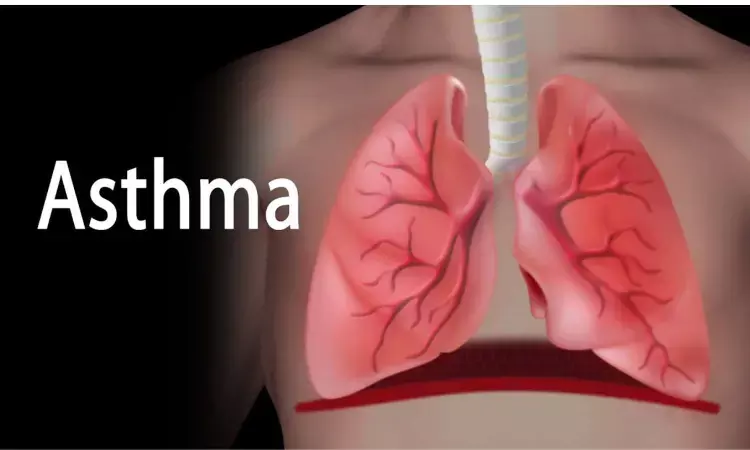- Home
- Medical news & Guidelines
- Anesthesiology
- Cardiology and CTVS
- Critical Care
- Dentistry
- Dermatology
- Diabetes and Endocrinology
- ENT
- Gastroenterology
- Medicine
- Nephrology
- Neurology
- Obstretics-Gynaecology
- Oncology
- Ophthalmology
- Orthopaedics
- Pediatrics-Neonatology
- Psychiatry
- Pulmonology
- Radiology
- Surgery
- Urology
- Laboratory Medicine
- Diet
- Nursing
- Paramedical
- Physiotherapy
- Health news
- Fact Check
- Bone Health Fact Check
- Brain Health Fact Check
- Cancer Related Fact Check
- Child Care Fact Check
- Dental and oral health fact check
- Diabetes and metabolic health fact check
- Diet and Nutrition Fact Check
- Eye and ENT Care Fact Check
- Fitness fact check
- Gut health fact check
- Heart health fact check
- Kidney health fact check
- Medical education fact check
- Men's health fact check
- Respiratory fact check
- Skin and hair care fact check
- Vaccine and Immunization fact check
- Women's health fact check
- AYUSH
- State News
- Andaman and Nicobar Islands
- Andhra Pradesh
- Arunachal Pradesh
- Assam
- Bihar
- Chandigarh
- Chattisgarh
- Dadra and Nagar Haveli
- Daman and Diu
- Delhi
- Goa
- Gujarat
- Haryana
- Himachal Pradesh
- Jammu & Kashmir
- Jharkhand
- Karnataka
- Kerala
- Ladakh
- Lakshadweep
- Madhya Pradesh
- Maharashtra
- Manipur
- Meghalaya
- Mizoram
- Nagaland
- Odisha
- Puducherry
- Punjab
- Rajasthan
- Sikkim
- Tamil Nadu
- Telangana
- Tripura
- Uttar Pradesh
- Uttrakhand
- West Bengal
- Medical Education
- Industry
Study reveals long-term asthma control with tezepelumab beyond treatment cessation

UK: In a significant stride forward in asthma treatment research, the extended follow-up from the 2-year DESTINATION study sheds light on the dynamics of biomarkers and clinical outcomes following the cessation of tezepelumab, a novel biologic therapy. The findings offer valuable insights into the long-term effects of tezepelumab discontinuation on asthma control and inflammatory biomarkers.
"Our analysis demonstrates the benefits of continued tezepelumab treatment in managing patients with severe, uncontrolled asthma, compared with stopping treatment after two years," the researchers stated in Annals of Allergy, Asthma & Immunology. Tezepelumab for severe asthma maintained its efficacy after two years of treatment cessation.
The analysis revealed that biomarker suppression, and improved clinical outcomes achieved during two years of treatment with tezepelumab did not rebound but gradually waned after cessation of tezepelumab treatment in patients with severe, uncontrolled asthma. During the 40-week follow-up period after treatment cessation, none of the outcomes assessed returned to baseline levels.
The DESTINATION study, a landmark trial in asthma management, evaluated the efficacy and safety of tezepelumab, a monoclonal antibody targeting thymic stromal lymphopoietin (TSLP), in patients with severe, uncontrolled asthma. It found that long-term tezepelumab treatment resulted in reduced asthma exacerbations, reduced biomarker levels, and improved lung function and symptom control in patients with severe, uncontrolled asthma.
Building upon the initial findings, in the extended follow-up, Christopher E. Brightling, University of Leicester, Leicester, UK, and colleagues explored the time course of changes in biomarkers and clinical manifestations following treatment cessation after two years of tezepelumab treatment.
DESTINATION was a two-year, phase 3, multicenter, randomized, placebo-controlled, double-blind study of tezepelumab treatment in severe asthma patients (12–80 years old). Patients received their last treatment doses at week 100 and could enroll in an extended follow-up (EFU) period from week 104 to 140.
Change over time in clinical outcomes and key biomarkers were assessed in tezepelumab versus placebo recipients for 40 weeks after stopping treatment. Of 569 patients enrolled in the EFU period, the analysis included 426 patients (289 received tezepelumab and 137 placebo).
The researchers reported the following findings:
- Over the 40 weeks after the last tezepelumab dose, there was a gradual increase from weeks 4–10 in blood eosinophil counts (BEC), fractional exhaled nitric oxide (FeNO) levels and Asthma Control Questionnaire-6 scores, with gradual reduction in pre-bronchodilator forced expiratory volume in 1 second such that BECs, FeNO levels and clinical outcomes returned to placebo levels; however, none of these outcomes returned to baseline levels.
- Total immunoglobulin E levels increased from week 28 and remained well below placebo and baseline levels during the 40 weeks after the last tezepelumab dose.
"The overall results of this analysis demonstrate the benefits of continuation of tezepelumab treatment in the management of asthma in patients with severe, uncontrolled asthma, compared with stopping treatment after 2 years," the study stated.
In conclusion, the extended follow-up from the DESTINATION study provides valuable insights into the long-term effects of tezepelumab cessation on biomarkers and clinical outcomes in patients with severe asthma. These findings hold promise for the development of targeted therapies and personalized treatment approaches, ultimately improving the lives of individuals living with this chronic respiratory condition.
Reference:
Brightling CE, Caminati M, Llanos JP, Caveney S, Kotalik A, Griffiths JM, Lundahl A, Israel E, Pavord ID, Wechsler ME, Porsbjerg C, Corren J, Gołąbek M, Martin N, Ponnarambil S. Biomarkers and clinical outcomes after tezepelumab cessation: extended follow-up from the 2-year DESTINATION study. Ann Allergy Asthma Immunol. 2024 Apr 30:S1081-1206(24)00280-1. doi: 10.1016/j.anai.2024.04.031. Epub ahead of print. PMID: 38697286.
Dr Kamal Kant Kohli-MBBS, DTCD- a chest specialist with more than 30 years of practice and a flair for writing clinical articles, Dr Kamal Kant Kohli joined Medical Dialogues as a Chief Editor of Medical News. Besides writing articles, as an editor, he proofreads and verifies all the medical content published on Medical Dialogues including those coming from journals, studies,medical conferences,guidelines etc. Email: drkohli@medicaldialogues.in. Contact no. 011-43720751


